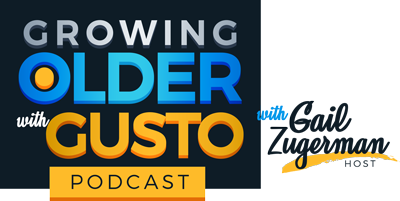 NOT ONLY COVID-19! Today, my husband & I decided to cancel our upcoming trip to visit family, and celebrate a milestone birthday due to concerns about the coronavirus. SO, instead of dwelling on our disappointment, I am writing today about being pro-active with our health in all areas! Earlier in the week on two separate occasions on the same day(Tuesday) news about how our diet or food intake can seriously affect our brain health(our meaning “women”) was brought to my attention in meaningful ways. Wall Street Journal Brain Health News First, an article in the Wall Street Journal(WSJ) on new nuggets of information from Lisa Mosconi, a neuroscientist and Director of the Women’s Brain Initiative at Weill Cornell Medical Center in New York City, on how our brains work and secondly, at my health club, CK, exercise enthusiast and instructor, (see my podcast where she is interviewed!) made copies of an obit from a woman aged 64 who who died from cancer, after being recognized as a premier researcher of diet and the female brain. Her name is Martha Morris and she was Director of The Rush Institute for Healthy Aging at Rush University Medical Center here in Chicago. Her research led her to believe there is a direct correlation between what we eat and dementia. News On How Just Being A Woman Can Impact Our Brain Health & Aging Lisa Mosconi, in her interview by Reddy in the WSJ informs us that our brains are wired differently from the time we are born! We have some advantages in that the structure of our brains allows us to multi-task a bit more easily than men. (However, my latest readings have indicated that multi-tasking isn’t necessarily an a good thing because we may not be that effective while doing it). Woman’s Brains VS. Men’s Brains Mosconi believes that women’s brains age differently than men’s and points to hormonal changes in our lives that are the underlying reason. Certain medical conditions are more common in woman such as depression, multiple sclerosis, migraines and brain tumors. Also, women tend to die more from strokes than men. Ugh! She explains that our brain doesn’t age in a linear way. Instead, it seems we need to think of our brains as traveling down a road with road bumps! These bumps include the onset of menstruation, pregnancy and menopause. Her research using the PET scan shows that women who are aging and are going through menopause have a 30% reduction in brain energy. Some women also build up plaque in their brain at this time. This brain drain can either go back up after menopause which is great, BUT it can worsen which is a flag that intervention is needed. The tests she mentions as being helpful to the aging woman include lipids; cholesterol and triglycerides, and insulin levels. She hopes that in the future a brain scan will be part of a woman’s checkup at midlife. The MIND Diet – An Anti-Inflammation Antidote Martha Morris, researched the relationship between food and inflammation that can result in the loss of brain function. She believed that the combination of the Mediterranean diet and The DASH diet result in lower levels of oxidation and inflammation. This may result in a lessened risk of lowered brain functioning as we grow older. I won’t bore you with the details of both these types of diet plans but instead will list the 10 Foods that are most important in the MIND diet and 5 foods to avoid. 10 Good Foods:
NOT ONLY COVID-19! Today, my husband & I decided to cancel our upcoming trip to visit family, and celebrate a milestone birthday due to concerns about the coronavirus. SO, instead of dwelling on our disappointment, I am writing today about being pro-active with our health in all areas! Earlier in the week on two separate occasions on the same day(Tuesday) news about how our diet or food intake can seriously affect our brain health(our meaning “women”) was brought to my attention in meaningful ways. Wall Street Journal Brain Health News First, an article in the Wall Street Journal(WSJ) on new nuggets of information from Lisa Mosconi, a neuroscientist and Director of the Women’s Brain Initiative at Weill Cornell Medical Center in New York City, on how our brains work and secondly, at my health club, CK, exercise enthusiast and instructor, (see my podcast where she is interviewed!) made copies of an obit from a woman aged 64 who who died from cancer, after being recognized as a premier researcher of diet and the female brain. Her name is Martha Morris and she was Director of The Rush Institute for Healthy Aging at Rush University Medical Center here in Chicago. Her research led her to believe there is a direct correlation between what we eat and dementia. News On How Just Being A Woman Can Impact Our Brain Health & Aging Lisa Mosconi, in her interview by Reddy in the WSJ informs us that our brains are wired differently from the time we are born! We have some advantages in that the structure of our brains allows us to multi-task a bit more easily than men. (However, my latest readings have indicated that multi-tasking isn’t necessarily an a good thing because we may not be that effective while doing it). Woman’s Brains VS. Men’s Brains Mosconi believes that women’s brains age differently than men’s and points to hormonal changes in our lives that are the underlying reason. Certain medical conditions are more common in woman such as depression, multiple sclerosis, migraines and brain tumors. Also, women tend to die more from strokes than men. Ugh! She explains that our brain doesn’t age in a linear way. Instead, it seems we need to think of our brains as traveling down a road with road bumps! These bumps include the onset of menstruation, pregnancy and menopause. Her research using the PET scan shows that women who are aging and are going through menopause have a 30% reduction in brain energy. Some women also build up plaque in their brain at this time. This brain drain can either go back up after menopause which is great, BUT it can worsen which is a flag that intervention is needed. The tests she mentions as being helpful to the aging woman include lipids; cholesterol and triglycerides, and insulin levels. She hopes that in the future a brain scan will be part of a woman’s checkup at midlife. The MIND Diet – An Anti-Inflammation Antidote Martha Morris, researched the relationship between food and inflammation that can result in the loss of brain function. She believed that the combination of the Mediterranean diet and The DASH diet result in lower levels of oxidation and inflammation. This may result in a lessened risk of lowered brain functioning as we grow older. I won’t bore you with the details of both these types of diet plans but instead will list the 10 Foods that are most important in the MIND diet and 5 foods to avoid. 10 Good Foods:
- Greens; leafy, veggies like kale and spinach 6+/week
- All other vegetables
- Nuts- 5/week
- Berries – 2/week
- Olive Oil
- Whole grains; oatmeal, quinoa 3+/day
- Fish – 1/week
- Beans; lentils, soybeans 2/week
- Poultry; chicken, turkey 2/week
- Wine; preferably red and no more than 1 glass/day
5 Foods to Avoid
- Butter & margarine
- Cheese<1/week
- Red Meat – no more than 3/week
- Fried Foods
- Pastries and Sweets – limit to <4/week
This is all very interesting and moderation is my mantra — including moderation. What’s yours?


Oh, why is chocolate, caramel, glazed donuts, and french fries never on the good list! Thanks Gail, hope you are well. <3